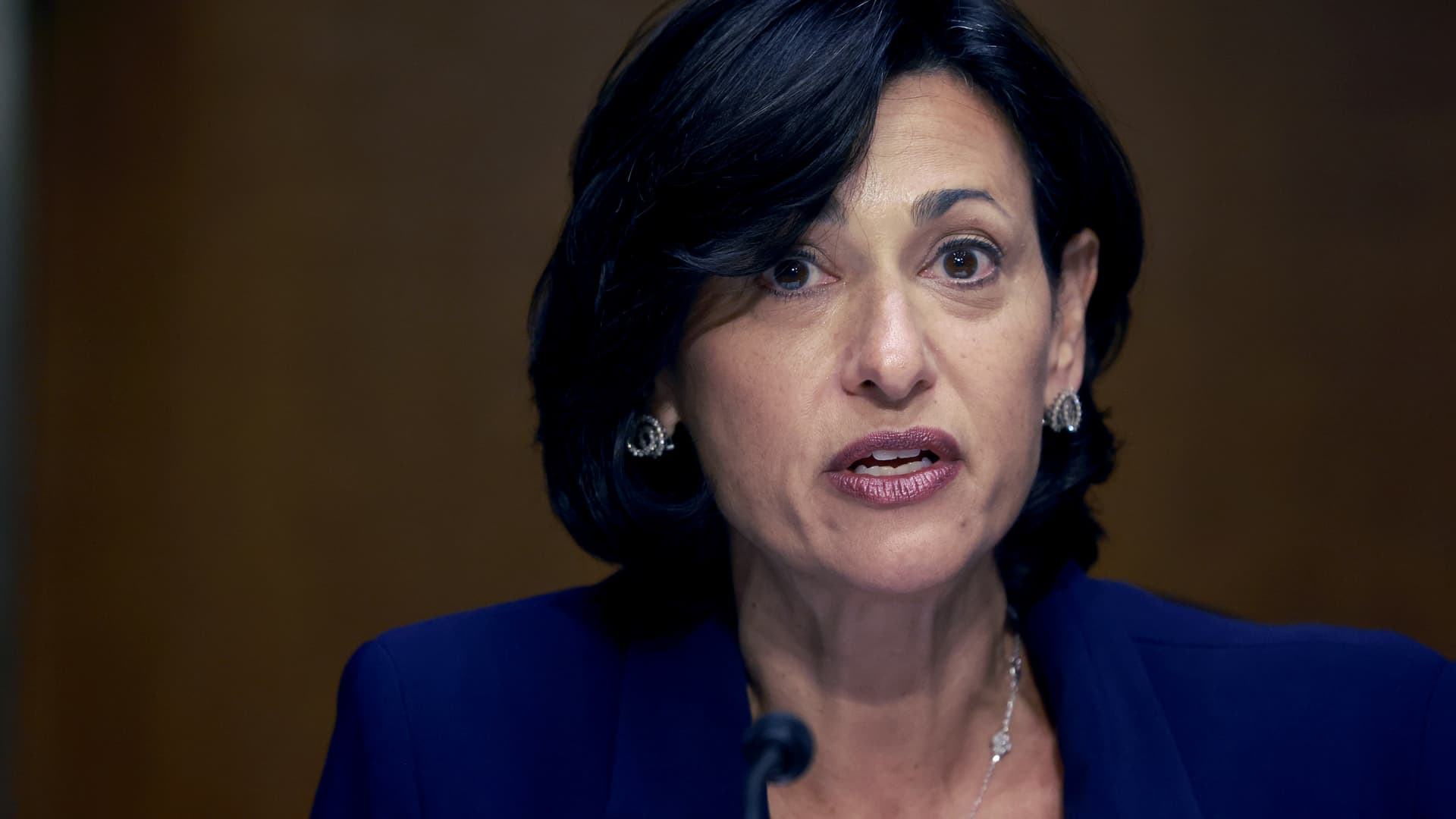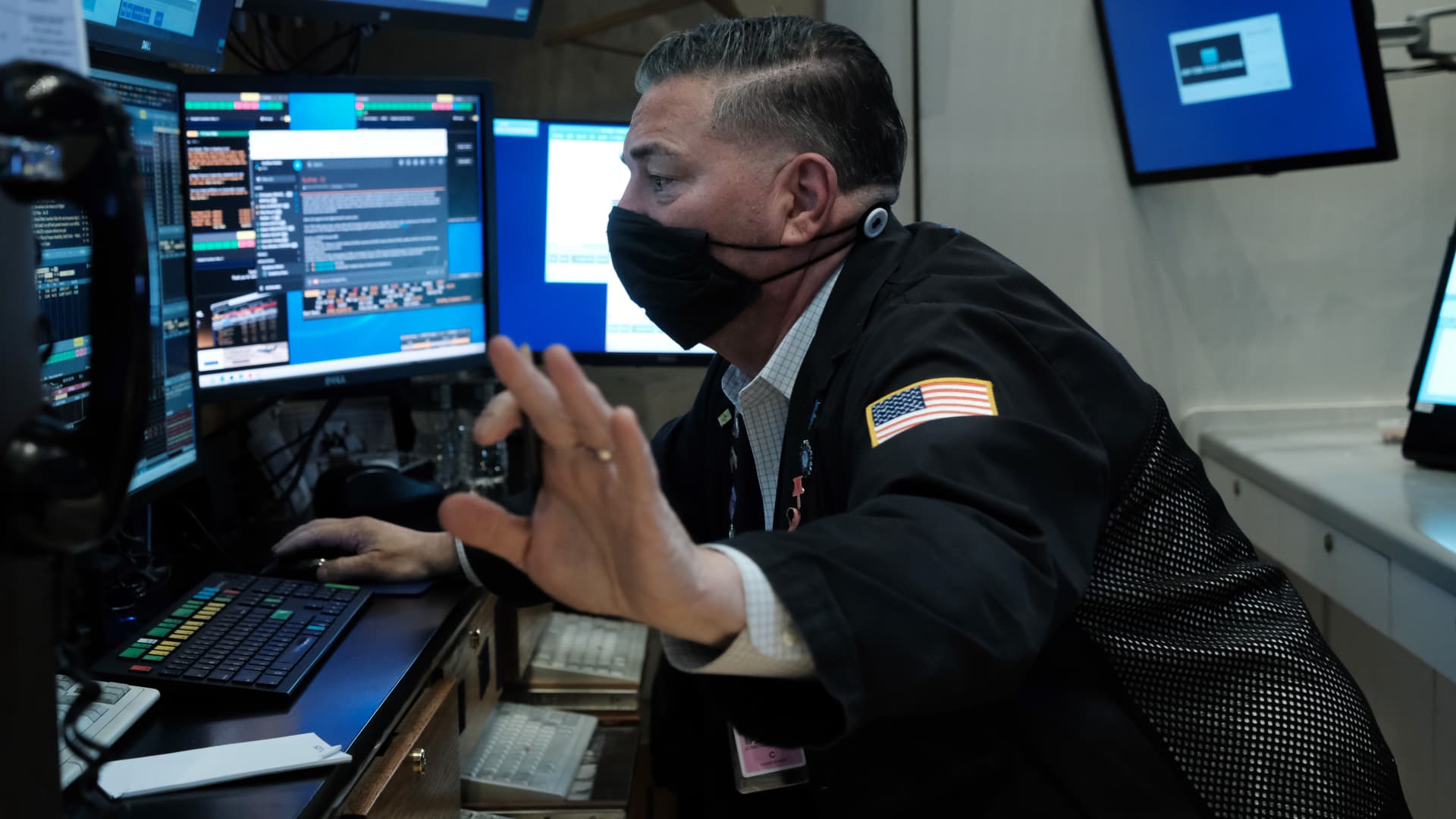California governor says state won't do business with Walgreens over position on abortion pill
Newsom's statement comes after Walgreens said it would not sell the abortion pill in 21 states due to legal restrictions.

California Gov. Gavin Newsom successfully quashed a recall attempt last year in California. Asked if he's getting ready for a presidential run, Newsom insisted that was not the case.
Justin Sullivan | Getty Images
California Gov. Gavin Newsom on Monday said the state would no longer do business with Walgreens, after the drugstore chain told 21 Republican attorneys general that it would not sell the abortion pill in their states.
Newsom said on Twitter that the state is "done" doing business with Walgreens. Brandon Richards, a spokesperson for the governor, said California is reviewing all relationships between Walgreens and the state.
"We will not pursue business with companies that cave to right wing bullies pushing their extremist agenda or companies that put politics above the health of women and girls," Richards said.
Walgreens said it plans to sell mifepristone "in any jurisdiction where it is legally permissible to do so," according to a statement. "Once we are certified by the FDA, we will dispense this medication consistent with federal and state laws," the company added.
The Food and Drug Administration in January allowed retail pharmacies to sell the abortion pill, mifepristone, if they are certified under an agency program that monitors how the medication is used and distributed.
Walgreens plans to become certified to sell mifepristone where it is legal to do so under state and federal law, the company has said. In February, 21 Republican attorneys general warned Walgreens against mailing mifepristone in their states.
Join CNBC's Healthy Returns on March 29th, where we'll convene a virtual gathering of CEOs, scientists, investors and innovators in the health care space to reflect on the progress made today to reinvent the future of medicine. Plus, we'll have an exclusive rundown of the best investment opportunities in biopharma, health-tech and managed care. Learn more and register today: http://bit.ly/3DUNbRo
The company told the attorneys general that it would not sell or mail the pill in their states. Politico first reported the news.
Mifepristone, used in combination with another drug called misoprostol, is the most common method to terminate a pregnancy in the U.S., accounting for about half of all abortions.
Mifepristone has become a central focus in the battle over abortion access in the wake of the Supreme Court ruling that overturned Roe v. Wade last June.
A group of physicians who oppose abortion have asked a federal court in Texas to suspend the FDA's approval of mifepristone. Democratic attorneys general, on the other hand, have asked a federal court in Washington to declare the remaining FDA restriction's on mifepristone unconstitutional.
The FDA approved mifepristone more than two decades ago, but the agency imposed restrictions to ensure the pill's safe use. The agency has gradually eased those restrictions over the years as more evidence on its safety and efficacy has come in.
The agency did away with a requirement that patients obtain the pill in person at certain health-care facilities and allowed the medication to be sent by mail. Patients still need a prescription from a health-care provider that's certified with the FDA.

 JaneWalter
JaneWalter 
































